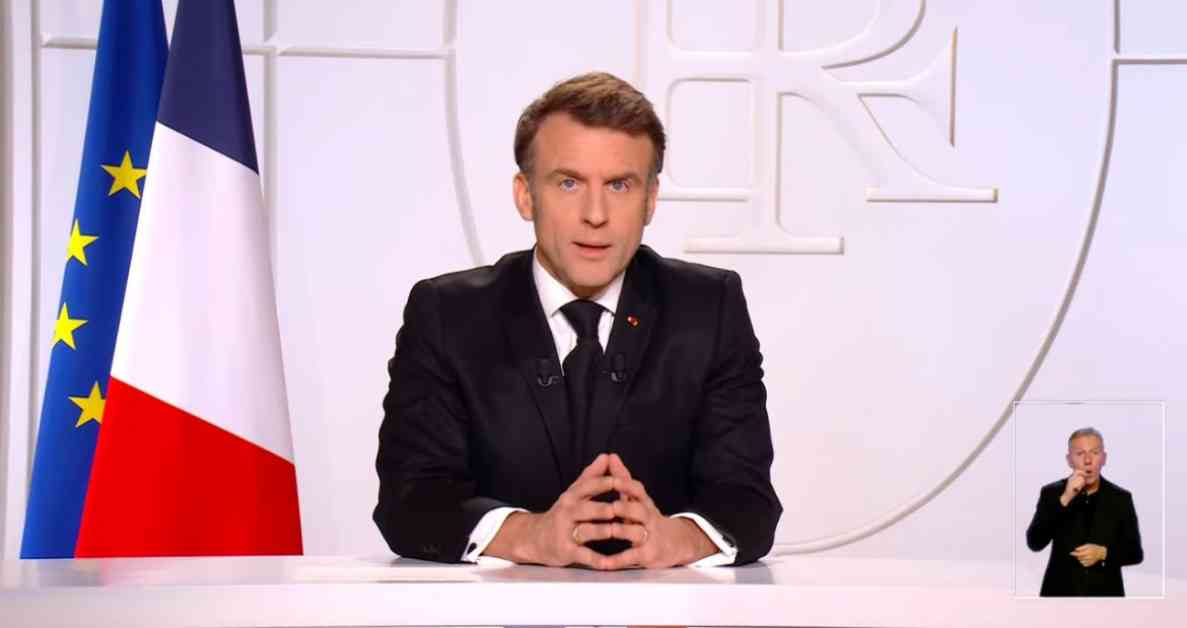In a recent address to the French nation, President Emmanuel Macron emphasized France’s sovereignty over its nuclear arsenal, asserting his role as the ultimate decision-maker and commander-in-chief of the country’s military forces. Macron highlighted France’s historical investment in nuclear deterrence since World War II, positioning the nation as a leader in defense capabilities within Europe.
The French President underscored the significance of France’s military strength, particularly its nuclear deterrence, in safeguarding the nation against potential threats. Macron praised the strategic decisions made by past leaders, which have equipped France with a formidable defense mechanism that surpasses that of many neighboring countries. He credited his own commitment to bolstering the French army over the past decade, emphasizing the importance of maintaining a robust military presence in the region.
Looking ahead, Macron announced a groundbreaking initiative to engage in a strategic debate with future German leaders regarding the extension of nuclear deterrence to other European countries. This proposal reflects a shift towards a more collaborative approach to defense among European allies, with the aim of enhancing security across the continent. Despite the potential expansion of nuclear sharing agreements, Macron emphasized that the ultimate authority and responsibility for such decisions would rest with the President of the Republic, who serves as the commander-in-chief of the French armed forces.
Expert Insights on Nuclear Deterrence and European Security
As Macron’s proposal sparks discussions on the implications of extending France’s nuclear deterrence to other European nations, experts in the field of international security offer valuable insights into the potential benefits and challenges of such a strategic shift. Dr. Sophie Leclerc, a renowned defense analyst, highlights the importance of collective defense mechanisms in an increasingly uncertain geopolitical landscape. She notes that cooperation among European countries in the realm of nuclear deterrence could serve as a powerful deterrent against external threats, fostering a sense of solidarity and mutual protection within the region.
Moreover, Dr. Hans Müller, a leading expert on nuclear proliferation, raises concerns about the complexities associated with nuclear sharing agreements and the need for clear guidelines to govern such arrangements. He emphasizes the critical role of transparency and communication in fostering trust among allied nations, particularly when it comes to sensitive issues related to nuclear weapons. As discussions unfold regarding the potential expansion of France’s nuclear deterrence, experts like Dr. Leclerc and Dr. Müller play a vital role in shaping the dialogue and informing policymakers about the strategic implications of these decisions.
Implications for European Security and Global Stability
The prospect of extending France’s nuclear deterrence to other European countries has far-reaching implications for regional security and global stability. By deepening defense cooperation and sharing strategic capabilities, European nations could enhance their collective resilience against evolving security threats, including the rise of authoritarian regimes and the resurgence of geopolitical tensions. The integration of nuclear deterrence into a broader framework of European defense policy signals a shift towards a more cohesive and coordinated approach to security challenges, reflecting a renewed commitment to upholding peace and stability in the region.
As Macron’s proposal gains momentum and garners attention from policymakers and analysts worldwide, the future of European security hangs in the balance. The decisions made in the coming months will shape the strategic landscape of the continent and influence the dynamics of international relations for years to come. With France taking the lead in initiating this dialogue on nuclear deterrence, the world watches with anticipation to see how European nations will navigate the complexities of collective defense and cooperation in an era defined by uncertainty and change.

















